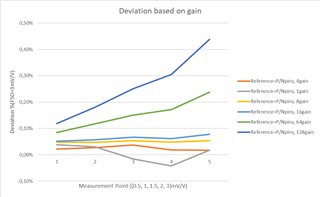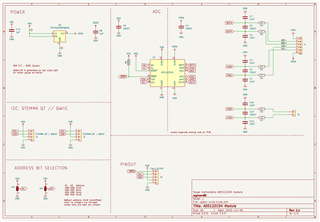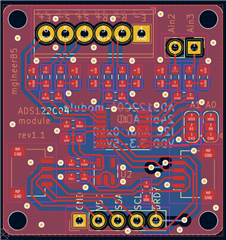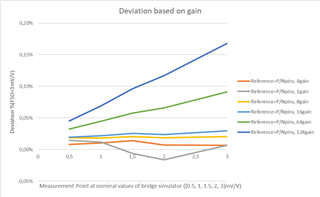Hello,
I try to get my head around this but I cannot find an issue.
I see depending on the gain different amount of deviations:

Following is the wiring diagram. To the ADC a strain bridge simulator is connected, simulating the steps 0mV/V ... 3mV/V. I already tried removing the input filter but it does not change anything.


Reference measurement made with a calibrated 6.5 digits multimeter.
Is this in the expected range? Anything I can check? How would I calibrate this out best?


